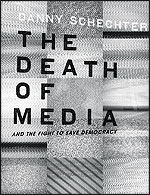Late last year The New York Times courageously performed the role envisioned for the press by the drafters of the First Amendment. In a 3,200-word front-page story, Times reporters James Risen and Eric Lichtblau revealed that the Bush administration, as part of its antiterrorism efforts, had allowed the National Security Agency (NSA) to conduct no-warrant wiretaps aimed at intercepting international telephone calls and e-mail messages from people in the United States, including American citizens. The story amounted to a tale of official wrongdoing at the highest reaches of government. It appears to be almost beyond dispute that the White House violated the law by failing to seek warrants from the Foreign Intelligence Surveillance Court. Given the ease with which such warrants have historically been obtained, the administration’s actions were not just constitutionally dubious but also inexplicable.
So it is instructive to examine how the ensuing media battle quickly transformed the story into just another partisan standoff. Conservative commentators attacked the Times’s editors for publishing the article — despite allegedly having promised to kill it — after they realized they were about to be scooped by Risen’s forthcoming book, as though that charge somehow negated the paper’s findings. The Fox News Channel’s Bill O’Reilly referred to the Times as “suspect number one,” while a guest, conservative pundette Michelle Malkin, referred to the NSA story as “just the latest in a pattern of news articles and opinion and analysis [in the Times] that has undermined the Bush war on terror since September 12, 2001.” The great constitutional scholar Rush Limbaugh informed his millions of listeners that the wiretaps were legal. The Wall Street Journal editorial page, National Review, and The Weekly Standard all rallied to the White House’s defense.
This conservative counterattack succeeded in changing the terms of debate. No longer was it about the original — and very real — issue of whether the administration should have obeyed the law. Rather, it was about the phony issue of whether the government should be allowed to spy on followers of Osama bin Laden, a cynical argument based on the false notion that the law somehow prevented such spying. Not surprisingly, by mid-January a Fox News poll showed that, by a 58 percent to 36 percent margin, respondents favored warrantless domestic wiretapping of “suspected terrorists.”
Dissecting War Coverage
It is this toxic media environment — in which nothing, not even illegal wiretapping, is immune from being reduced to mere politics as usual — that is the subject of Danny Schechter’s book “The Death of Media: And the Fight to Save Democracy,” a small, elegantly packaged call for reform of what he has dubbed the “mediaocracy.” Schechter defines this “mediaocracy” as “a growing symbiotic relationship between increasingly interlocking media elites and their political counterparts … a political system tethered to a media system.” This book stands as a persuasive indictment of those intertwined systems.
Don’t be put off by the back-cover blurb from far-left media critic Noam Chomsky. Although Schechter and Chomsky may share some political sympathies, Schechter understands the media as an insider. A counterculture media pioneer in the 1970’s, when he was the “News Dissector” at Boston’s WBCN Radio (then an independent “underground” station, now part of the CBS empire), Schechter is an award-winning television producer (his stops include ABC’s “20/20”) and a documentary filmmaker on topics ranging from international human rights to the meltdown in Florida following the 2000 presidential election. (Disclosure: I’m among his talking heads in the Florida film, “Counting on Democracy.”) In recent years he has worked as the executive editor of MediaChannel.org, a global, nonprofit media-watch site, and he writes a widely read Weblog at www.NewsDissector.org.
The hyperkinetic Schechter has been especially busy since the fall of 2002, when the Bush administration began preparing the nation — and the news media — for the war in Iraq. His voluminous blogging about the war was turned into a book, “Embedded: Weapons of Mass Deception: How the Media Failed to Cover the War on Iraq,” published by Prometheus in 2003. His excellent 2004 film on how the media rolled over for the White House, “WMD: Weapons of Mass Deception,” has now been packaged as a DVD with a companion book, “When News Lies: Media Complicity and the Iraq War,” published by SelectBooks in 2006.
There is quite a bit of overlap among Schechter’s various projects, but perhaps each will find its audience. What Schechter has to say is important, and it needs to be heard.
Of course, media angst over war coverage is now widespread. Critics such as Michael Massing, in The New York Review of Books, have painstakingly documented how the elite media — and especially The New York Times and its then-reporter Judith Miller — failed to exercise the normal degree of journalistic skepticism about administration claims that Saddam Hussein’s regime possessed weapons of mass destruction and was in league with al-Qaeda. Few, however, have managed to connect the dots the way Schechter has.
As Schechter observes, the cheerleading coverage of the war, especially on television, played out at a moment when the major corporations that own much of our media were seeking billions of dollars in deregulatory goodies from the Federal Communications Commission (FCC). That the FCC was then headed by Michael Powell, the son of President Bush’s first secretary of state, Colin Powell, only serves to underscore this grotesque conflict of interests. And though Congress and the courts ultimately revolted against Michael Powell’s proposed giveaway, the corporations were not left empty-handed. General Electric, the owner of NBC, which offered perhaps the most flag-waving war coverage among the Big Three networks, later received a $600 million federal contract to take part in the reconstruction of Iraq.
In “The Death of Media,” Schechter outlines what he calls a “Media and Democracy Act,” which is just one in a series of reform plans advanced in recent years by various progressives, both foreign and domestic. Among his ideas:
- Using antitrust laws to break up the media monopolies;
- Devising a revenue stream for public broadcasting and independent producers, perhaps with a tax on advertising;
- Updating and reinstating the Fairness Doctrine for broadcasters;
- Advancing a hodgepodge of public-interest measures, from free wireless Internet access to media-literacy education.
It might be unimaginable that any of these steps would be taken in the current political climate, especially given the stake the “mediaocracy” has in making sure they fail. They are, nevertheless, commonsensical proposals to cut the media giants down to size and to provide some resources for alternative voices.
“The oligarchy doesn’t need an educated public. And maybe the nation does prefer tyranny. I think that’s what worries me,” the late Hunter S. Thompson once said. Schechter reproduces that quote in “When News Lies,” but he hardly shares Thompson’s pessimism. Indeed, Schechter is enthusiastic about new developments such as blogging and citizen journalism, which empower activists and ordinary people to talk back to the established media.
Sadly, this might be the flaw in Schechter’s vision — the notion that, somehow, the truth will emerge from a cacophony of voices. To his credit, Schechter has retained his faith in the ability of truth to defeat falsehood in a “free and open encounter,” as Milton would have it, or in Holmes’s marketplace of ideas. But I suspect that if Richard Nixon had been able to tap into a network of media sycophants the way George W. Bush can, he would have weaseled out of Watergate with ease, justifying the break-in on national-security grounds and letting the Rush Limbaughs and Sean Hannitys of his day do the heavy lifting for him. I fear that Thompson, ever the realist, might have gotten it right.
But still, we have to try, don’t we? In “The Death of Media,” Schechter asks, “How can we convert our media system into a diverse platform for more diverse expression and informed debate? How can we work to insure that media serves democracy?”
This book — as well as Schechter’s other books, films and blog — is a good place to start.
Dan Kennedy is a visiting assistant professor at Northeastern University’s School of Journalism and the author of the Weblog Media Nation.



